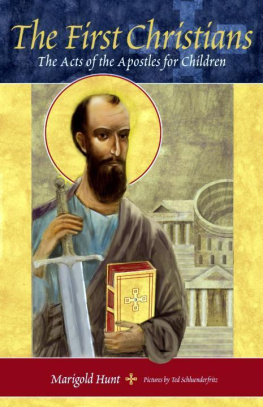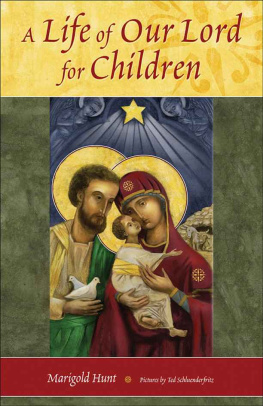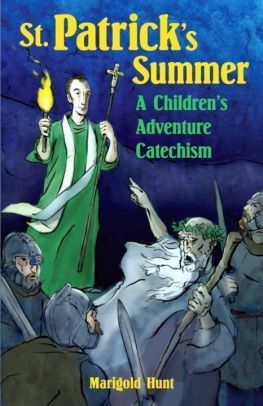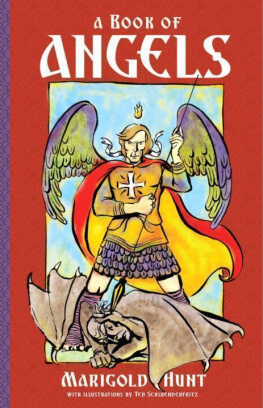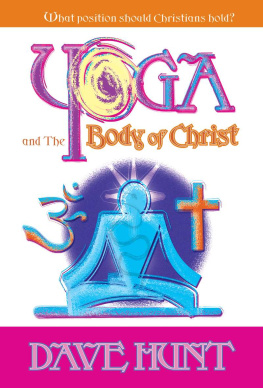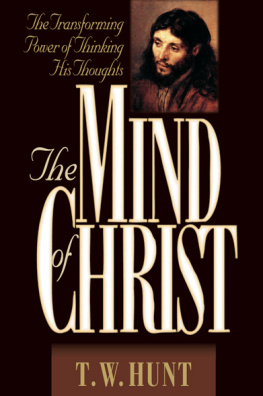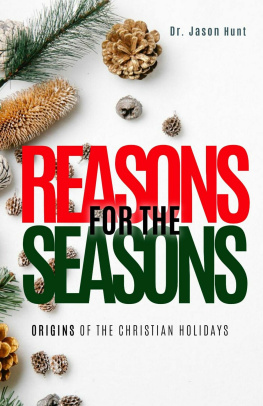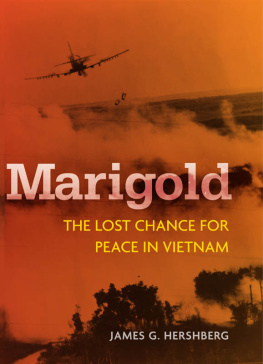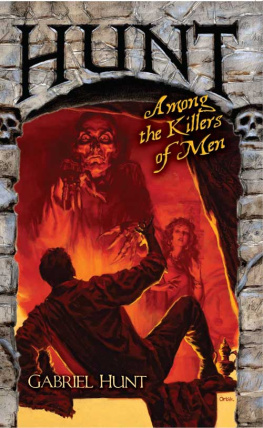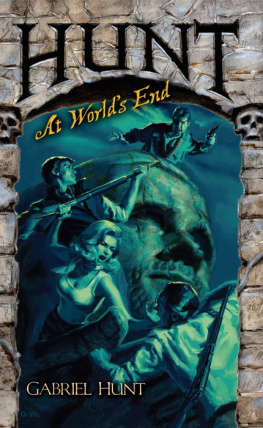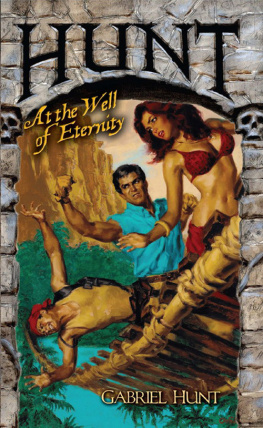Marigold Hunt - The First Christians
Here you can read online Marigold Hunt - The First Christians full text of the book (entire story) in english for free. Download pdf and epub, get meaning, cover and reviews about this ebook. year: 2004, publisher: Sophia Institute Press, genre: Detective and thriller. Description of the work, (preface) as well as reviews are available. Best literature library LitArk.com created for fans of good reading and offers a wide selection of genres:
Romance novel
Science fiction
Adventure
Detective
Science
History
Home and family
Prose
Art
Politics
Computer
Non-fiction
Religion
Business
Children
Humor
Choose a favorite category and find really read worthwhile books. Enjoy immersion in the world of imagination, feel the emotions of the characters or learn something new for yourself, make an fascinating discovery.
- Book:The First Christians
- Author:
- Publisher:Sophia Institute Press
- Genre:
- Year:2004
- Rating:4 / 5
- Favourites:Add to favourites
- Your mark:
- 80
- 1
- 2
- 3
- 4
- 5
The First Christians: summary, description and annotation
We offer to read an annotation, description, summary or preface (depends on what the author of the book "The First Christians" wrote himself). If you haven't found the necessary information about the book — write in the comments, we will try to find it.
The First Christians — read online for free the complete book (whole text) full work
Below is the text of the book, divided by pages. System saving the place of the last page read, allows you to conveniently read the book "The First Christians" online for free, without having to search again every time where you left off. Put a bookmark, and you can go to the page where you finished reading at any time.
Font size:
Interval:
Bookmark:

.............................3
................... 15
..................... 27
..................... 37
.................................. 51
............................ 59
.................. 75
.................. 89
........... 99
..................... 111
..................... 123
................. 135
...................... 155
....................... 167


 he Acts of the Apostles is a true story, and an exciting one nobody ever had more adventures or faced more dangers than the first Christians. St. Luke wrote the Acts after he had written his Gospel, as a continuation of the same story, a second volume.
he Acts of the Apostles is a true story, and an exciting one nobody ever had more adventures or faced more dangers than the first Christians. St. Luke wrote the Acts after he had written his Gospel, as a continuation of the same story, a second volume.
In his Gospel, St. Luke had told of how our Lord founded His kingdom in spite of everything His enemies could do to prevent it and how hard they had tried from the time when Herod had killed all of the boy babies in Bethlehem because he thought that was the way to be sure of killing our infant Lord, to the time when the leaders of our Lord's own people turned Him over to the Romans to be crucified. That seemed, at the time, like the end of everything, but of course it wasn't: His death, as we all know, was the very thing that opened the gates of Heaven to us all He was really triumphing completely over His enemies just when He seemed to have failed.
St. Luke had written about all that. He told about how our Lord had said that His followers could expect just the same kind of treatment that He had received, and just as it had not prevented Him from founding His Kingdom, so it would not prevent them from spreading it over the world. Our Lord had told the Apostles that they would be brought before governors and kings to be tried as enemies for doing His work, and that they must expect to be imprisoned and beaten and killed and that, just the same, the work would go on and nothing could stop it.
St. Luke could see it all happening already, just as our Lord had said it would, and he thought, "I must write about this, too." So he did, and the Acts of the Apostles is the book he wrote.
Suppose he had gone to sleep just after he finished writing it, and had slept and slept and only woken up again today. He would have had a lot of surprises, wouldn't he? But he would find that though our Lord's Kingdom has spread amazingly, its members are still being treated very much as the first Christians were. You can hardly pick up a newspaper without seeing something about Catholic bishops and priests being put on trial and jailed, or beaten and killed for going on with the work of spreading our Lord's Kingdom. The story of the Church is all one story: we won't find the first chapters surprising and St. Luke wouldn't find our chapter surprising, and this is really rather odd when you remember how much everything else has changed since those days. It's just because everything has changed so much that I have written this book.
There are all sorts of things that St. Luke takes for granted we will understand, because when he wrote anybody would have understood them, but that seem thoroughly puzzling to us. Some are small things easily explained, like calling nine o'clock in the morning the "third hour of the day," and some are large things, not so easy to explain, such as what being told to go and convert the whole world meant to the Apostles. We are used to thinking of the world as a round ball with the north pole at the top and the south pole at the bottom and all the continents and seas neatly arranged in between. But when St. Luke wrote no one thought of the world in the least like that.
They thought of Rome as the center of it, and the farthest away places that the Romans had been to as the edges of it anyway as the edges of anything that mattered. Now the Romans had been a very long way to Spain and England, to Germany and Africa and far over toward China, but that leaves quite a lot of world unaccounted for, doesn't it? There were two whole continents they didn't know existed and much more of Europe and Asia and Africa than they guessed.
So when the Apostles were told to go and convert the "whole world" they had no idea what a large job God was giving them.
In fact they really thought that if they worked very hard, they might get it done in their own lifetimes. If they had been told that nearly two thousand years later it still wouldn't be finished, I don't know what they would have thought! God's plans have a way of being larger than we suppose and He doesn't usually tell us more about them than we need to know to do our part in them properly.
Of course if we had all worked as hard at converting the world as the Apostles did, it would certainly be done by now: they had got an astonishing amount done by the time they were killed. Thomas had preached as far away as India to the east, and James had been all the way to Spain.
One thing that helped them was that the Romans were very good at making roads and all the world they had reached was linked up with good wide roads on which soldiers could march and horses be ridden and driven. If you have ever gone for a walk in the country where there was no road and had to scramble through thick woods and wade through streams and climb hills, you will understand what a terrific difference it makes in the time it takes to get anywhere whether you have a road to travel on or not.
Nothing is more fun than walking across country away from roads, I know, but if you are trying to reach a place one hundred miles away, it is no fun at all. Another thing about the Romans that helped the Apostles was that they were good at making laws, and seeing that they were kept, and that made the world a safer place than it had been. Not that it was so very safe there were plenty of robbers and bandits about, and no one dared go on a long journey alone. But still it was much better than it had been.
Font size:
Interval:
Bookmark:
Similar books «The First Christians»
Look at similar books to The First Christians. We have selected literature similar in name and meaning in the hope of providing readers with more options to find new, interesting, not yet read works.
Discussion, reviews of the book The First Christians and just readers' own opinions. Leave your comments, write what you think about the work, its meaning or the main characters. Specify what exactly you liked and what you didn't like, and why you think so.

